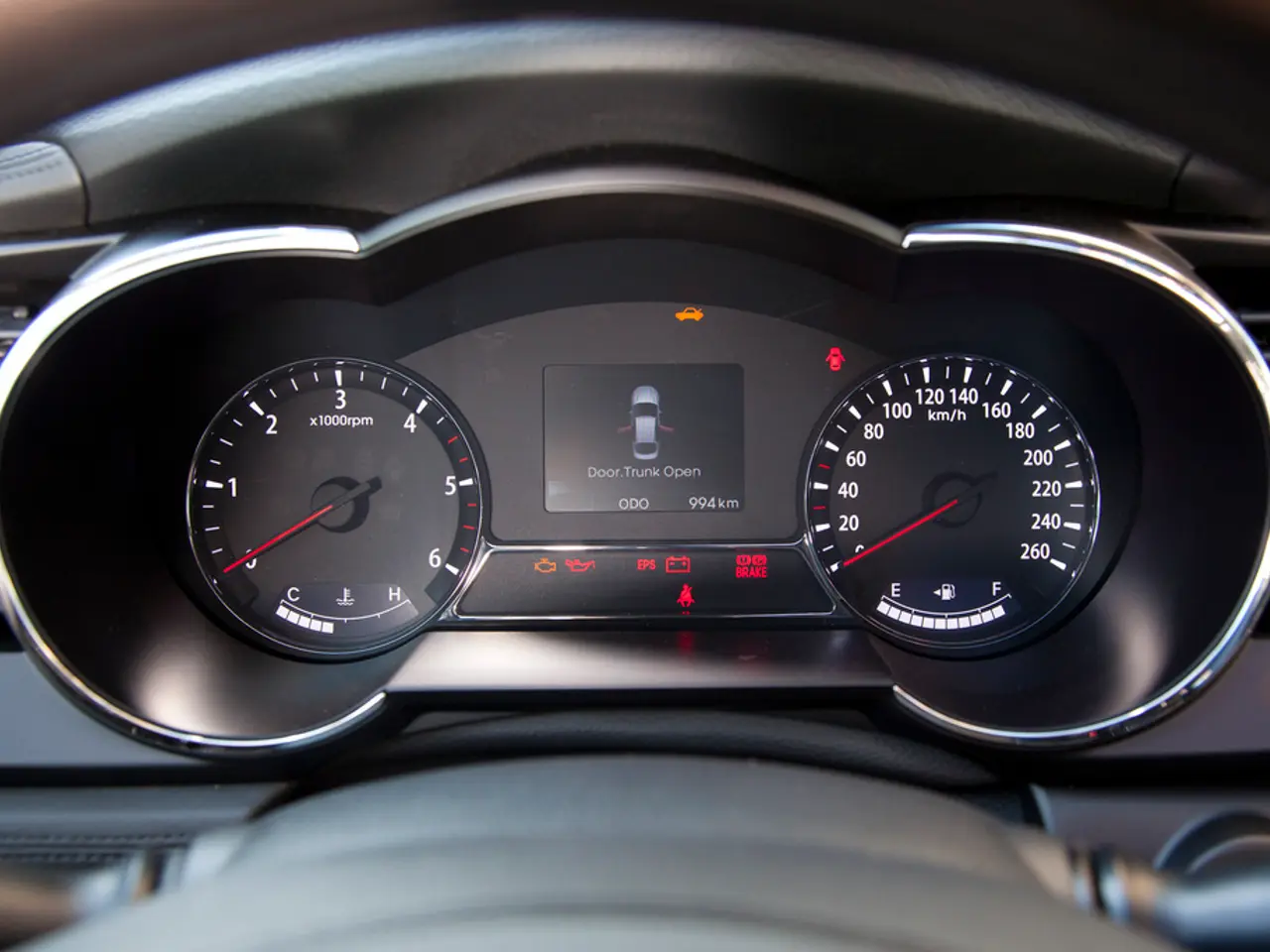Porsche halts Taycan vehicle sales in the United Kingdom due to potential battery combustion threat
The luxury electric vehicle market has been hit with a new challenge as Porsche announces a recall for certain models of the Taycan due to a potential high-voltage battery issue. This problem, if left unresolved, could lead to vehicle fires, adding to a string of recent challenges for the Taycan, including a significant drop in global sales.
The primary safety concern with the Taycan electric vehicles lies in the risk of short circuits within the battery modules. This issue affects Taycan models from 2020 through 2024, involving around 27,527 units recalled in the U.S. to mitigate this risk.
To address this issue, Porsche has implemented a multi-faceted approach. The Taycan’s Battery Management System (BMS) continuously monitors battery health, individual cell status, and state of charge (SoC) to detect abnormalities and prevent issues from escalating. High-voltage batteries undergo rigorous safety testing, ensuring the battery can safely shut off on receiving a crash signal and that output relays cut off power supply promptly to prevent hazards.
In addition to these measures, Porsche is conducting a recall to address the battery short-circuit risk. The remedy involves inspecting and potentially replacing affected battery packs with reconditioned packs under warranty. Updates to high-voltage battery pack software may also be applied to enhance safety.
Owners are being asked to bring their vehicles to dealerships every 60 days for battery inspections until the new software becomes available. While not Taycan-specific, similar recalls recommend owners keep their vehicles parked outdoors and away from structures and avoid charging until repairs are completed.
The software update will be capable of detecting early signs of battery malfunction and alerting the driver. The battery monitoring software update for the affected Taycan models is expected to be released by the end of June 2025.
It's worth noting that the suspension of sales only applies to a small number of older Taycan units. The majority of Taycans on the market remain unaffected and are still available for purchase. Porsche has instructed current owners of the affected models to limit charging to no more than 80% capacity.
In the meantime, the steep depreciation in used Taycan vehicle values continues to be another challenge the model is currently facing. Despite these challenges, Porsche remains committed to resolving the battery issue swiftly and ensuring the safety of its customers.
[1] Porsche Taycan Battery Safety Measures: https://www.porsche.com/usa/newsroom/articles/2021/porsche-taycan-battery-safety-measures [2] Porsche Taycan Recall: https://www.cnbc.com/2023/02/28/porsche-taycan-recall-affects-27527-vehicles-in-us-over-battery-safety-concerns.html [3] Porsche Taycan Recall Details: https://www.reuters.com/business/autos-transportation/porsche-recalls-27500-taycan-cars-over-battery-safety-concerns-2023-02-28/ [4] Chrysler Jeep Recall Guidance: https://www.cbsnews.com/news/chrysler-jeep-recalls-544000-vehicles-over-fire-risk/
- As Porsche tackles the battery issue in its Taycan models, it's essential for gadget enthusiasts and technology lovers to take precautions when charging their electric-vehicles, especially since the software update for the affected Taycan models is not expected until the end of June 2025.
- Amidst the challenging lifestyle changes for Taycan owners, Porsche continues to prioritize safety by upgrading the Battery Management System (BMS) to detect potential malfunctions early on and by implementing routine battery inspections every 60 days at dealerships.
- The recall of certain Porsche Taycan models due to high-voltage battery issues not only affects the luxury electric vehicle market but also extends to the broader gadgets and technology sector, reminding us all about the importance of prioritizing safety in our evolving electric-vehicle lifestyle.




